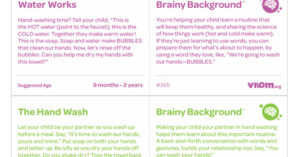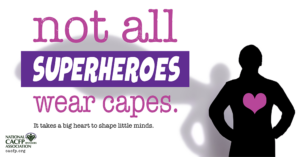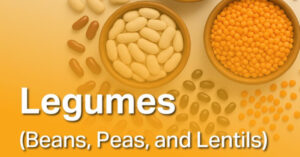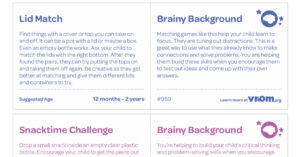Posts Tagged ‘Early Care and Education’
Spark Curiosity
Curiosity is the key to learning. When you encourage children to ask lots of questions, you’re helping them build their natural curiosity and think like scientists. Our partners at Sesame Street in Communities have great resources to help you encourage curiosity with those in your care.
Read MoreHealthy Habits: Brain Builders
Parents and caregivers do a lot to help child stay healthy! At mealtime, they choose foods to help them grow strong. At bedtime, they teach them how baths keep us clean. And don’t forget every time they brush their teeth, wash their hands, or move their body.
Did you know these healthy habits help their brain grow flexible and strong, too? The skills they learn from the time you spend together don’t wash down the drain. They last a lifetime!
The Power of the Food Program: Head Start
Acelero Learning Monmouth Middlesex (Acelero) operates eight Head Start centers that serve meals to over 800 children through the CACFP. Food Service Coordinator, Stephanie Manchester, and her team work to ensure that they are providing nutritious meals for all of the children across their eight sites.
Read MoreUnplug and Play
Summer is nearly here, and the school year is winding down. The temptation to swap class time for screen time is strong, but it’s not what children need most. That’s why our partners at Read Aloud 15 Minutes have created summer materials designed to spark creativity and encourage physical activity without relying on screens.
Read MoreProvider Appreciation Day
Tomorrow, May 9th, is Provider Appreciation Day! We’ve all heard the phrase “not all superheroes wear capes,” and not to be cheesy, but in this case it is true. Instead of a cape, you may wear an apron, a monitor’s hat, a power of the food program sticker, or an advocate badge. e want you to be supported for the tireless work you do to ensure your community is food and nutrition secure.
Read MoreLegumes: Beans, Peas, and Lentils
Did you know a simple bag of beans could be the key to powering up your CACFP menus? Legumes like beans, peas, and lentils are versatile, affordable superfoods. Regularly consuming legumes may help reduce the risk of obesity, diabetes, heart disease, and certain cancers. Including them as part of your menu can positively impact the health of the children in your care.
Read MoreMay Virtual Events
Get a rundown on all things happening in May at NCA. Annual Training is happening this month. Don’t miss out!
Read MoreVirtual CACFP Summit coming this August!
We’re bringing you workshops on nutrition, program administration, operations, financial and nonprofit management, and more.
Read MoreQuarterly Policy Update: April 2025
The start of 2025 has come with many changes as a new administration has taken office and a new Congress has began. So far in 2025, two important CACFP bills have been re-introduced, CACFP Week was recognized nationwide, and a USDA request for information was completed.
Read MoreScience in Everyday Moments
Young children are curious about the world around them. Through the everyday moments you already share, you’re helping your child learn like a scientist. Our partners at Vroom have some brain builders to help you turn nature into a classroom!
Read More









